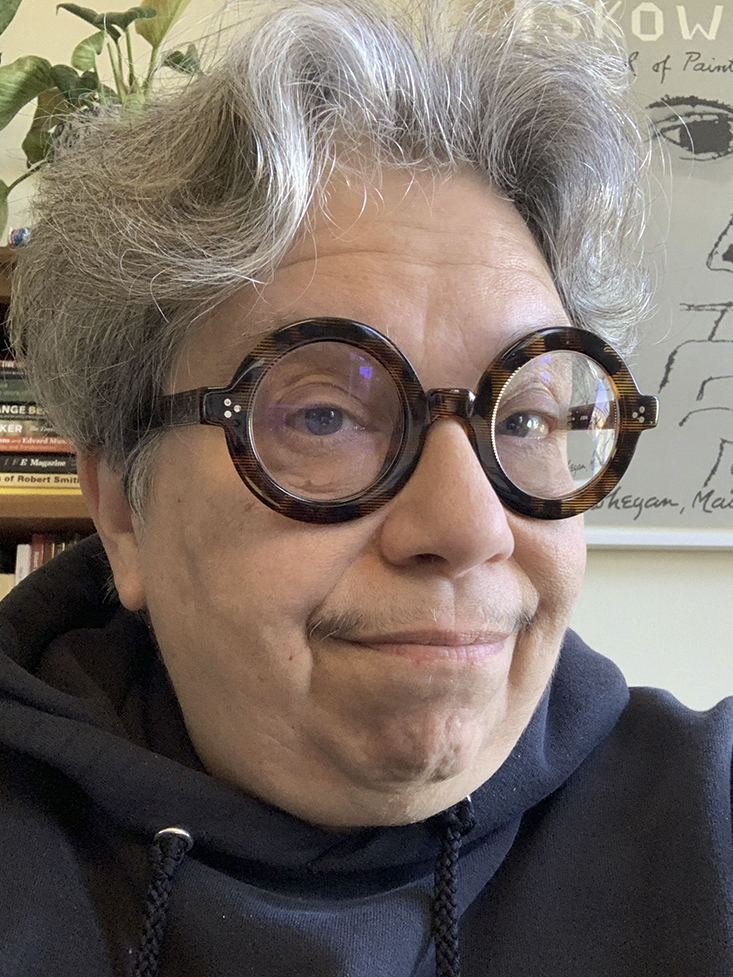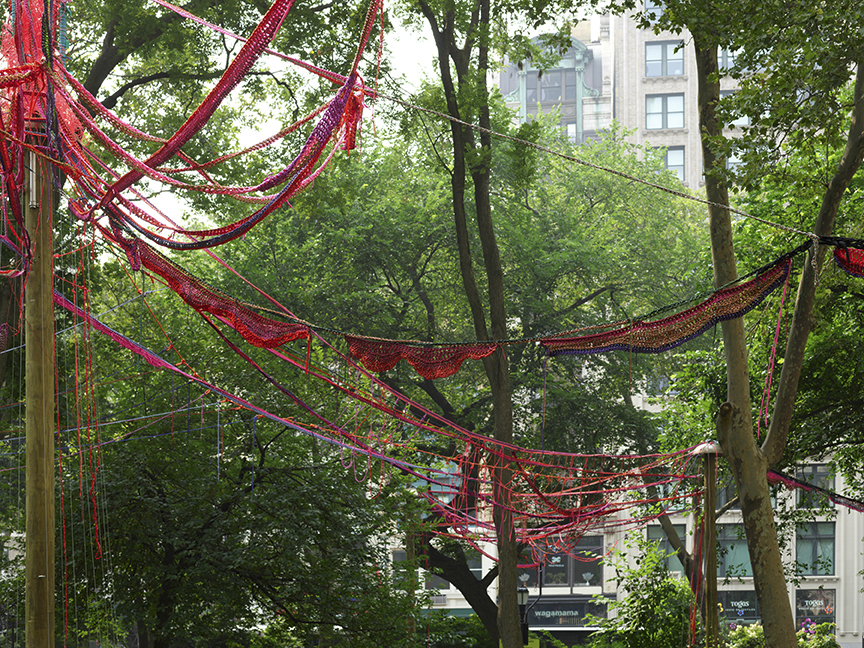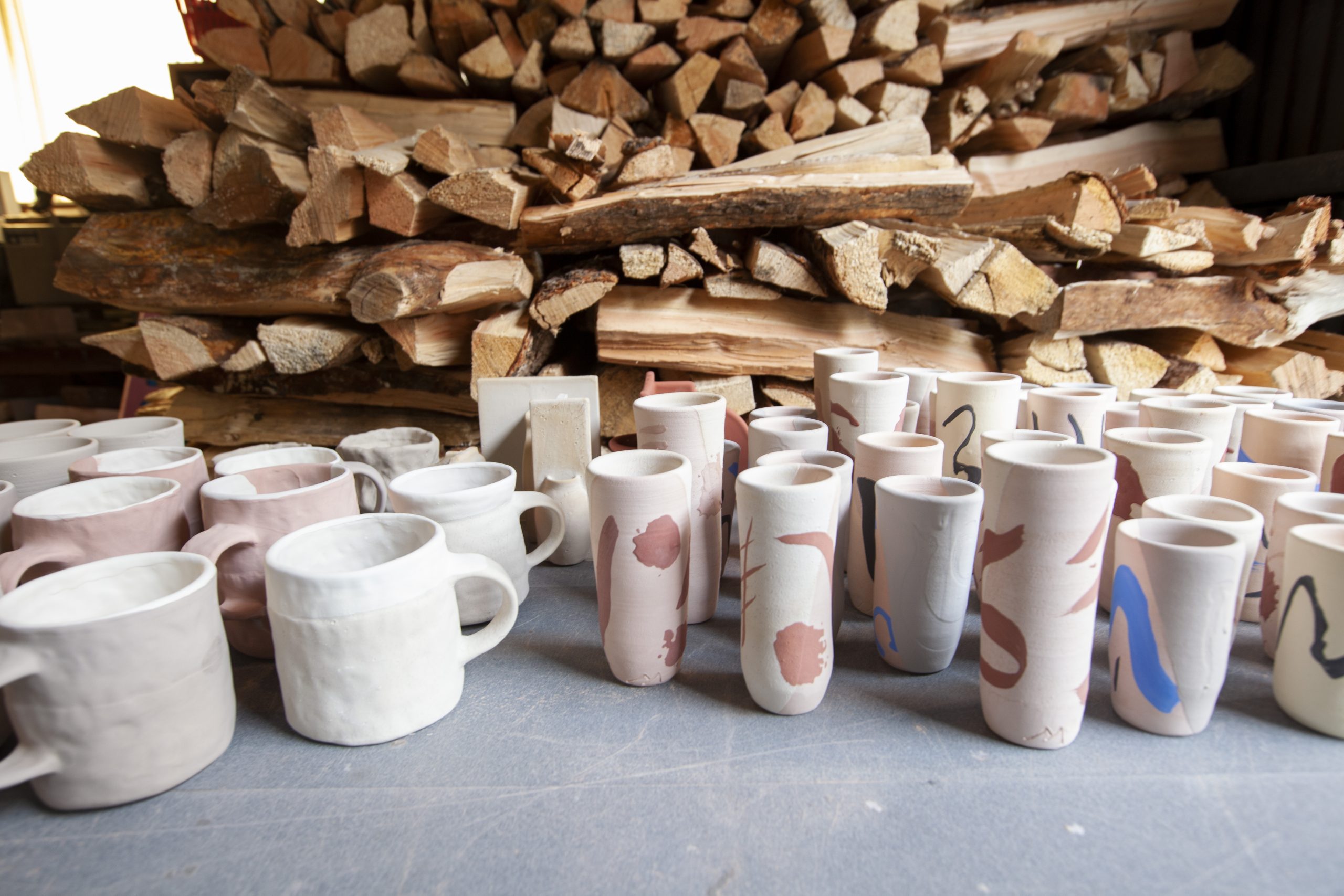Sculpture
Code: S0806-24
-
IV
Level IV
Students have advanced skills and knowledge of sculpture. Students are highly motivated, have a minimum of five years experience in the field and have multiple portfolios of their artwork. Typical students are academics and professional artists.
Master Class: The Engineer and Madam Bricolage are Lovers
Jul 22 - 26, 2024
9AM - 5PM
Concept
In the early 1990s “Bricolage” was heavily referenced as a method of discourse, based on ideas found in the works of French theorists Claude Levi-Straus and Jacque Derrida. Thirty years later the term has become ubiquitous, naming entrepreneurial theory, restaurants, and architecture firms. Lifting small quotes from original texts, Sheila leads a master class in her favorite studio methods of accumulation, construction, and “taking apart and putting- back together,” all the while subjecting outcomes to tests of complexity, legibility, and aesthetic resolve. Open to all media from metal to found materials to fabric, this class encourages participants to come with their own set of studio practices and concerns, but to be looking for an opportunity to grow and expand their work.
Media
Metal, welding, wood construction, assemblage, found objects, fabric, installation
Supply ListFaculty

Sheila Pepe
As an artist and educator, Sheila Pepe likes to trespass disciplinary boundaries, and has been working in various sculptural media since 1995. Her work has been shown nationally and internationally, including venues such as the DeCordova Sculpture Park and Museum, Lincoln, MA; the Minnesota Museum of American Art, St. Paul, MN; The Bemis Center for the Arts in Omaha, NE; and Art International with PASAJ, Istanbul, Turkey. Her most recent installation, “My Neighbor’s Garden,” was on public view in New York’s Madison Square Park. She has taught at Bard, Columbia, Pratt, RISD, Stanford, VCU, Williams College, and Yale, and was resident faculty at Skowhegan School of Painting and Sculpture in 2013 and at Dartmouth University in 2024.

Sheila Pepe, My Neighbor's Garden
Join Waitlist for Master Class: The Engineer and Madam Bricolage are Lovers
Thank you for your interest in the waitlist. When space in a workshop or program becomes available, registration will open on the website. Everyone on the waitlist will be emailed to alert them of the opening. This ensures that everyone has an equal opportunity to register for the workshop or program.
Sculpture
Express your creativity and vision by exploring the limitless art of sculpture. At Anderson Ranch, our sculpture program offers a vibrant spectrum of workshops that reflect a variety of studio practices. At the confluence of tradition and technology, these programs are material and technique-rich, ranging from classical metal fabrication to experimental digital production.
Students work in communal and interactive studios designed for all levels of experience, supporting traditional and nontraditional methods. The sculpture studios are fully equipped with advanced machinery and offer additional outdoor covered workspace.
Our renowned sculpture faculty work closely with students through critical discussions, material demonstrations and individual assistance. Instructors encourage exploration and experimentation, emphasizing process and idea development. We complement this with a focus on process and sound construction. You leave with far more than finished pieces—you walk away with the tools and inspiration required to elevate your studio practice.
Workshop Details
Supply List
Many of the items you'll need are available in the ArtWorks Store. Please click "View Full Supply List" to see a comprehensive list of items you'll need for this workshop.
Lodging & Meals
Housing is limited and includes shared and private lodging options. Reservations will be managed on a first-come, first-served basis. The earlier you reserve housing, the better your chance of receiving your preferred option. Please note: Workshop costs do not include accommodations.
We have established a Business Safety Plan with added layers of precaution that prioritize the health and safety of our staff, students, faculty and guests while continuing to provide you with the Anderson Ranch experience that you know and enjoy.
The Ranch Café meal plan that is included with Room and Board fees strives to provide healthy, creative meals that will nourish your artistic creativity. The meal plan includes 5 days of continental breakfasts that will include a hot offering, 5 lunches with a selection of offerings, and 5 dinners.
Related Events

Scholarships, College Credit & Discounts
Making Art Accessible
Applications for scholarship support are encouraged. Specific scholarships are funded by Ranch supporters, either through endowed funds or special gifts.
Many colleges and universities offer college credit for workshops taken at Anderson Ranch. Discounts are available for students and teachers.
You Might Also Be Interested In

-
O
Open to All
Students of any skill and knowledge level.
Jul 29 - Aug 2, 2024
9AM - 5PM
Creative Reuse
Jean Shin
Tuition $1,250
Code S0907-24
By adopting creative reuse strategies in art-making practices, artists will transform everyday objects and discards into assemblages, sculptures, and installations. When researching a common object’s history, its use, circulation, and disposal, we see the devastating consequences of extractive practices and overconsumption on our planetary health. How can artists instead, use our junk and leftover scraps to hold memory, tell stories, and evoke regenerative possibilities? While salvaging and repurposing materials, artists explore innovative ways to infuse personal meaning, cultural significance, and ecological urgency in their artwork. This workshop is structured around group critiques, individual feedback, and studio time.

-
O
Open to All
Students of any skill and knowledge level.
Aug 5 - 9, 2024
9AM - 5PM
Sculpture: Object, Movement, and Installation
Anna Tsouhlarakis
Tuition $1,160
Code S1008-24
Sculpture encompasses a wide range of media that can be light, hurried, heavy, or immobile. Performance can embody a scope of experiences and can be thoughtful, improvisational, and ritualistic. Throughout the week, participants create connections between object, self, and location to explore the possibilities of different combinations of interactions. Participants produce work in varying scales using various materials, including found objects and plaster casts. Connections and experiments between the object and maker are then explored through performance and/or site-specific installation. Finding the balance between object, movement, documentation, and presentation is central to the workshop.
-
O
Open to All
Students of any skill and knowledge level.
Aug 12 - 16, 2024
9AM - 5PM
Pattern-Formed Enameled Copper Vessels
Nash Quinn
Tuition $1,160
Code S1109-24
In this workshop, we celebrate the limitless potential of the jeweler's saw by exploring the ways that this versatile tool can create an intricate, precise pattern in flat sheet metal. This pattern-forming process allows the metal to be folded into a volumetric, symmetrical 3D shape. Once the vessels are formed, we can begin to play with color by fusing powdered glass onto the surface of the metal, a technique known as enameling. This workshop is a great introduction to the world of small-scale precision metalworking. Must be 18 years old to participate.









